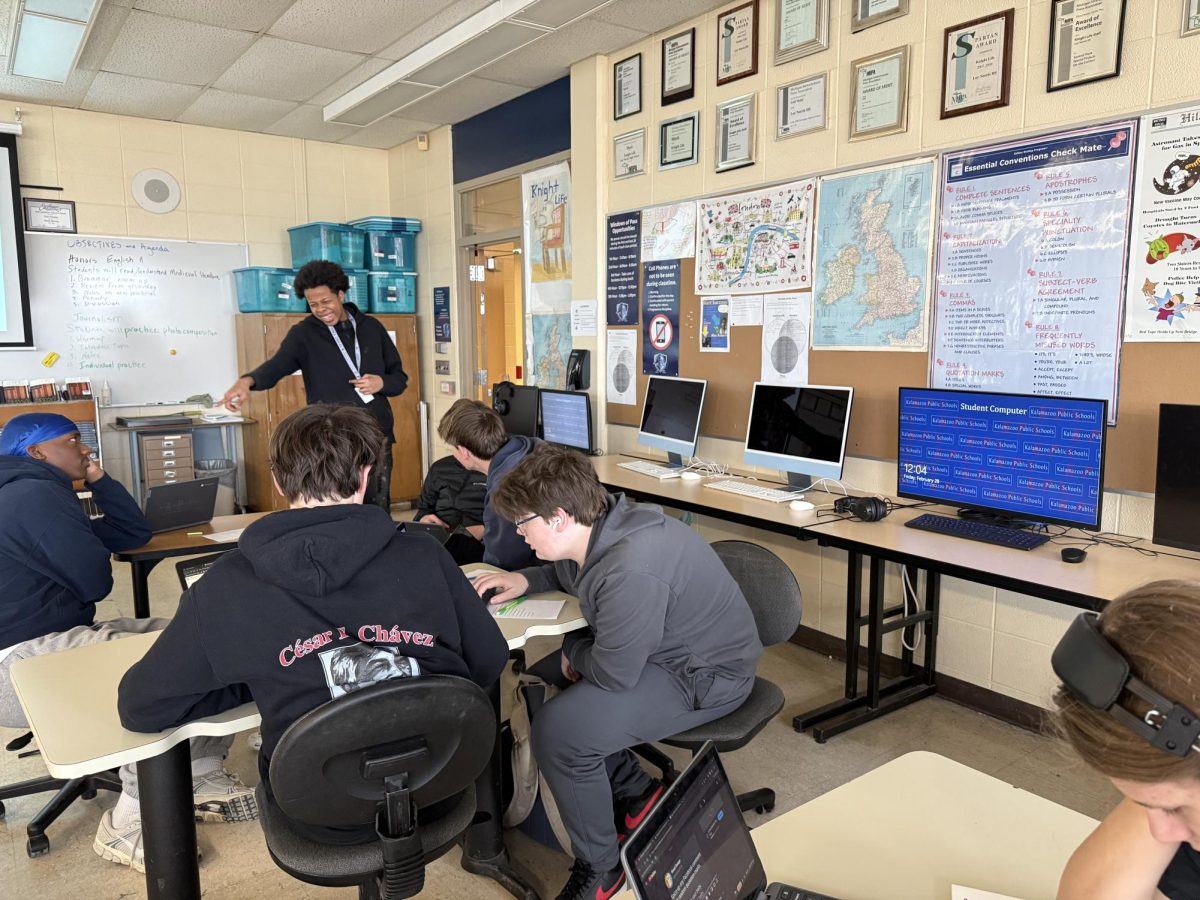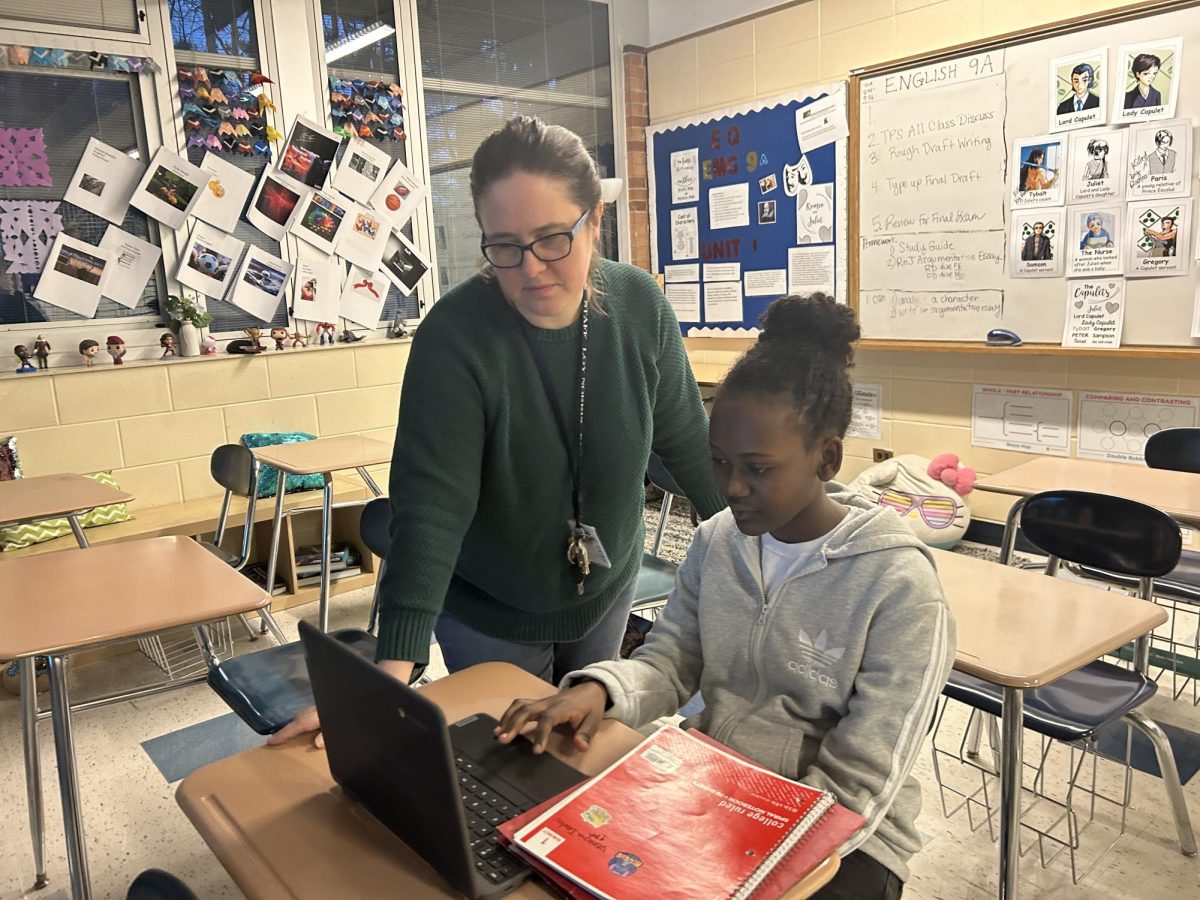
With the onset of summer and the end of the school year, teens under and at the age of 16 begin to desire the one thing they feel will give them complete and blissful independence—driving.
This luxury enables trips to the beach, arriving to places on time, and getting to hang out with friends and explore the city. However, the only thing standing between teens and the keys is a road test. For many new drivers, this test is viewed as a moment in which they go from simple children, to the cool kids with a car.
Most kids are just nervous that they might be made fun of for not passing the test, they do not know what to expect, or may have heard parking horror stories. While those are legitimate and reasonable reasons to put off the road test, the test is not as hard as everyone makes it out to be.
Sophomore Genevieve Nicolow has had her Level 2 drivers license for 3 months. She was worried about passing the test due to the fact that a few of her friends had not passed the first time they took it. Nicolow used her past experiences to boost her confidence when the day of her road test came.
“Since I’d driven in such awful conditions, I was confident about driving in nice ones,” Nicolow said.
Although the thought of a “test” can lead to people hoping that they don’t forget everything the minute the car is turned on, giving yourself credit for the good things you did while driving and remembering that you have been practicing for a long time are great ways to build confidence for the test. Driving has become much more natural and you will be surprised how much you actually do know when the time comes.
Sophomore Maddie Olech said, “I was pretty eager [to take the test]. Calm, cool and collected I guess. I love driving and I’ve had over a year practice so it wasn’t bad at all.”
Olech has been driving independently for about 2 months. She practiced driving so much that she spent a lot of extra time practicing her parallel parking.
“Well, I’ve been driving so long I didn’t really need to prepare other than to parallel park,” Olech said.
Another way to view the road test is a means of escaping the constant nagging from parents. They always seem to make the whole situation more stressful than it needs to be. Every gasp, or reach for the handle above the door, or sudden interjection, while helpful and in the best interest of both parties in the vehicle, can make it seem as if you are driving poorly or not paying attention enough. It may make you start overthinking everything you do, or begin to focus on one issue too much and not pay as much attention to the whole picture.
Nicolow said, “I was more excited about loud music and driving without play by play critiquing from my parents.”
Yet, the time spent practicing with a parent truly helps in the end, despite the fact that they may appear to be nagging for their own amusement. They really want to see you pass and drive on your own, as long as you do so safely.
As you prepare to take the road test, go over scenarios in your head and try to anticipate what you would do to avoid an accident.
Nicolow said, “When I prepared to take the road test I made sure to follow even usual overlooked driving laws to make sure I had driving habits that would pass the test.”
The most important aspect while driving independently is staying safe when on the road. The statistics that you learned while taking your drivers training classes come to life as soon as you hit the road on your very own. You will see other teenage drivers disobeying speed limits, forgetting to use their turn signals, running red lights, tailgating, and driving recklessly in general. There will be drivers that swerve around the street or try to change lanes without looking. You need to be prepared for anything. A car is definitely not a tank.
Sophomore Steven Finley, who has been driving independently for a month, said, “Do not go above 5 miles over the speed limit, always wear a seat belt, don’t text and drive, pay attention to your mirrors.”
It may look like all the “cool” kids are speeding or texting while driving, but in reality more people than not follow the rules of the road and you should never give in to peer pressure. From 2010 to 2011, national teen driving deaths decreased by 3 percent according to the Rocky Mountain Insurance Information Association.
Driving with friends in the car is not necessarily a good thing while you are beginning on your own. You can only have one passenger while you have a level 2 license. Driving requires concentration and the utmost care and responsibility.
“ALWAYS pay attention. You never know what could happen and it’s very easy to get distracted, so just look where you’re going, I guess,” Olech said.
Once you pass the test, there is a moment in which you are excited that you were able to pass a “rite of passage.” This moment is perfect until you realize that although your parents have “driven” you crazy, they actually gave you a sort of comfort to know that someone experienced was in the car. Once you begin to drive alone, you will grow more confident as you have to deal with new experiences without the aid of an adult and must make decisions for yourself. It helps to make you a more confident person, and a more decisive one too.
Finley said, “I did get more confident afterwards, because I had passed and I was ready for anything, you get a feeling of being invincible.”
Students who can drive say that they are able to control when they can leave for school in the morning or for other events. The ability to grab the keys and take yourself to where you need to go without depending on another person is a liberating feeling. Driving opens up opportunities to do more activities outside of school.
Olech said, “You don’t have to depend on anyone other than yourself. Like my dad is always late to everything so it was frustrating and it’s just so nice having a license and car and being able to be more independent and not do everything with your parents.”
Nicolow had similar feelings regarding driving independently, agreeing that the best part about driving is being able to go wherever you want. She also expressed the fact that driving lessens the worry associated with having to pick up rides with friends or parents.
“It is easier to take on more activities outside of school when you can drive because you don’t have to worry about getting to and from the activities. You can also convince more friends to do the activities with you, since you can drive them,” Nicolow said.
The benefits to the ability to drive far outweigh any fears that you many have. Driving gets easier the longer you do it. You must remain aware of the rules of the road for there will not be an adult there to guide you every step of the way. As for the road test, it is quick and simple. It is only 45 minutes so only a short amount of time can be designated for each type of location.
Sometimes, it is easier to bite the bullet rather than drag an event out. The feelings of accomplishment are so overwhelming afterwards. Driving in silence with a parent in the back seat is actually beneficial because you can really think and practice driving without a parent getting scared every time you turn a corner. If you do not pass the first time though, you will. Don’t let that fear hold you back. Practice the things you were told to work on and the road test and driving will become second nature.







